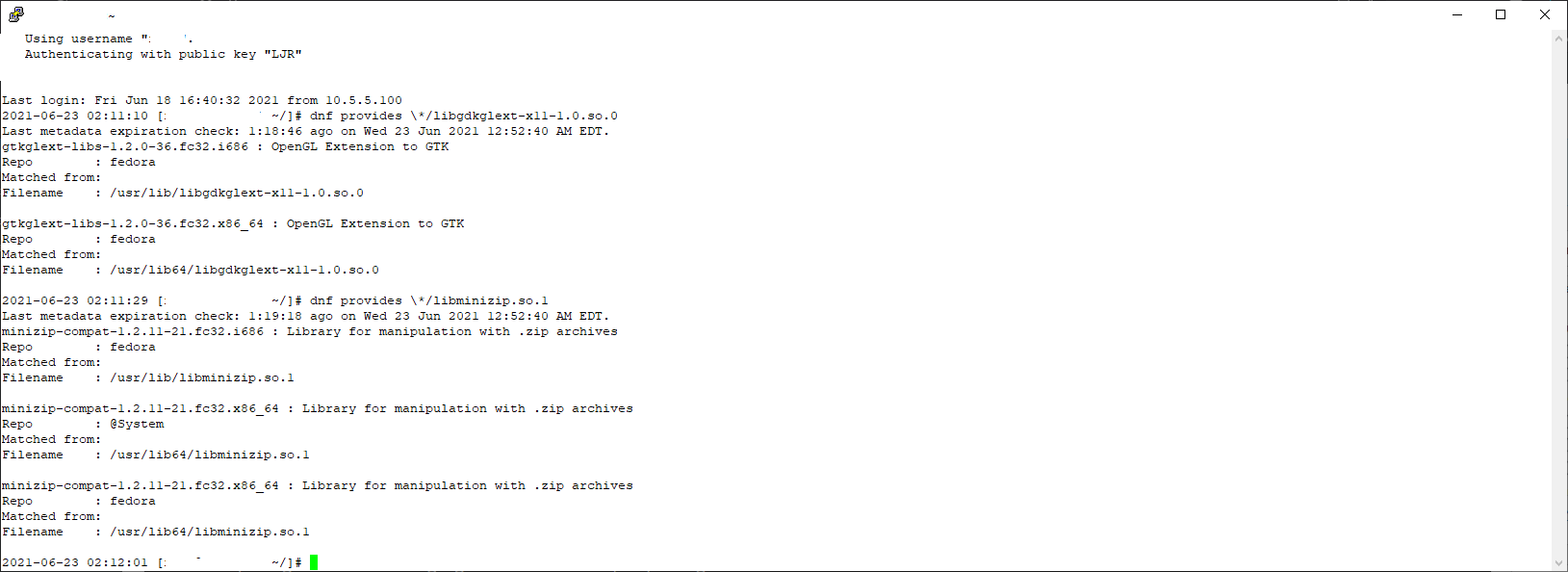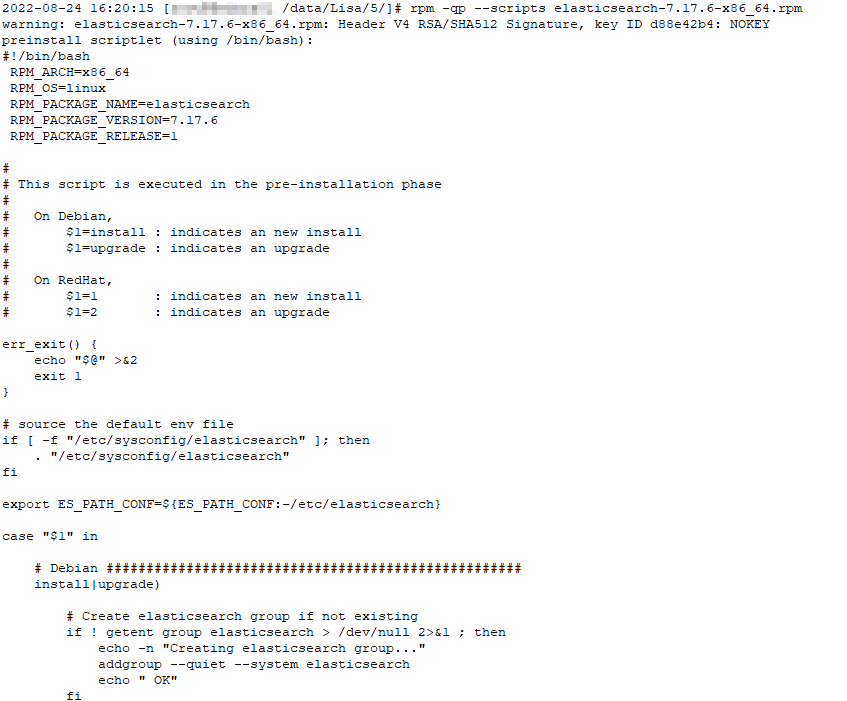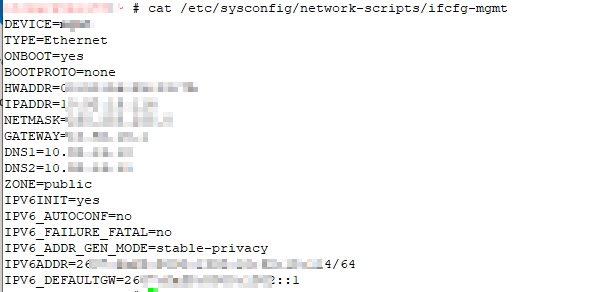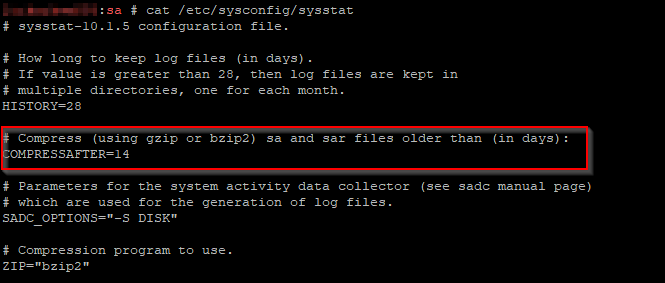“Dependency hell” used to be a big problem — you’d download one package, attempt to install it, and find out you needed three other packages. Download one of them, attempt to install it, and learn about five other packages. Fifty seven packages later, you forgot what you were trying to install in the first place and went home. Or, I suppose, you managed to install that first package and actually use it. The advent of repo-based deployments — where dependencies can be resolved and automatically downloaded — has mostly eliminated dependency hell. But, occasionally, you’ll have a manual install that says “oh, I cannot complete. I need libgdkglext-x11-1.0.so.0 or libminizip.so.1 … and, if there’s a package that’s named libgdkglext-x11 or libminizip … you’re good. There’s not. Fortunately, you can use “dnf provides” to search for a package that provides a specific file — thus learning that you need the gtkglext-libs and minizip-compat packages to resolve your dependencies.







